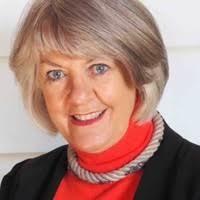The awarding of an Australia Day award to men’s rights activist and commentator Bettina Arndt has overshadowed coverage of the annual awards even as the overall proportion of women to be awarded reached a new high of 41.6%.

Professor Sharon Bell
Gender equality advocate Professor Sharon Bell, who was awarded an Order of Australia in 2019, joined the chorus of disapproval, which included former Australian of the Year and domestic violence advocate Rosie Batty.
In a letter to the Governor General General David Hurley, Professor Bell wrote the awarding of a Member of Australia (AM) to Ms Arndt “diminishes the significance of this award, gives legitimacy to the dubious propositions she is advancing and reinforces her false premise that the advancement and just treatment of women is ‘at the expense of men’.”
“Ms Arndt’s controversial views on sexual violence and pedophilia are well known and widely publicised, so awards committees must have been cognisant of this, yet have chosen to proceed with this recognition,” Professor Bell wrote.
“I am not opposed to recognition of advocates for men except when that advocacy generates harm, although framing this contribution as gender equity is extraordinary.”
“I am not opposed to recognition of advocates for men except when that advocacy generates harm, although framing this contribution as gender equity is extraordinary.”
Ms Arndt told The Australian ahead of the awards that she expected a controversial reception to the award.
“The mainstream media has unfortunately become dominated by a particular ideological clique which is totally out of whack with what quiet Australians think,” she said.
The brouhaha over the Arndt honour has dominated coverage of the 2020 Australia Day awards with news that women for the first time received 41.6% of the awards.
Women received more than 40% of awards across all categories, with the exception of Order of Australia (AO), in which they were recognised at a rate of just 27.1%.
Women received more than 40% of awards across all categories, with the exception of Order of Australia (AO), in which they were recognised at a rate of just 27.1%.
Women were the majority of awardees in just two categories: the arts (32 of 62 awards) and religion (five out of nine awards).

Elizabeth Hartnell-Young
Elizabeth Hartnell-Young from gender equality advocacy group Honour a Woman said the overall recognition was a positive result.
“But it’s still not 50-50,” Dr Hartnell-Young said. “The good news is nominations of women have increased significantly in the past three years.”
However, she noted, that the number of male nominations had also increased.
“That’s why we need structural change,” she said.
Honour a Woman has been advocating for all state and territory governments to establish processes that increase nominations for women. She noted that Victoria, which has taken significant steps in that direction, led to Victorian women receiving 49.6% of all awards in that state this year.
The group has also been advocating for gender targets.
“The Governor General supports an increase in women receiving awards and he has the authority to establish targets,” Dr Hartnell-Young said.
“We urge him to consider this as a more definite means of ensuring gender equality.”




